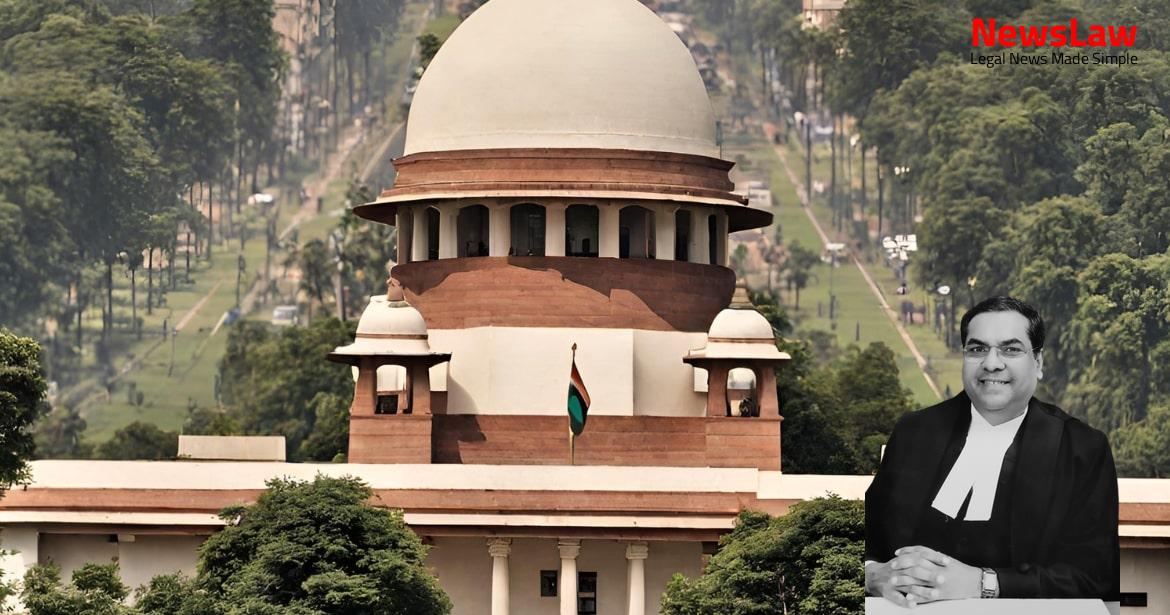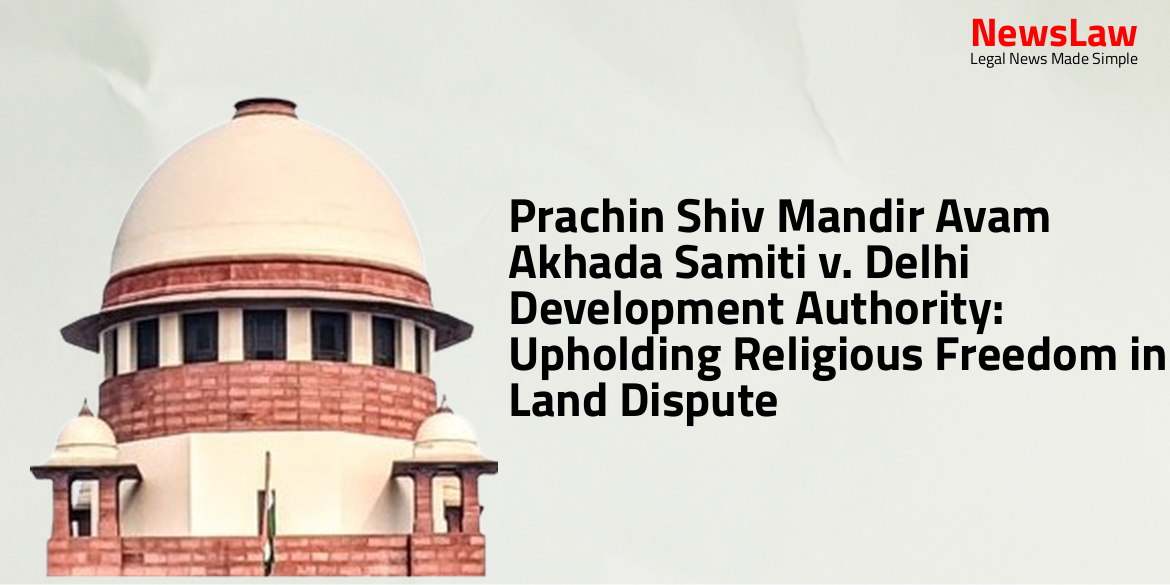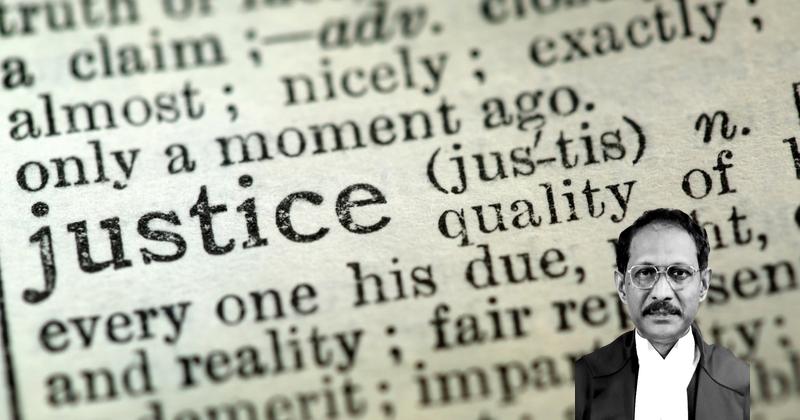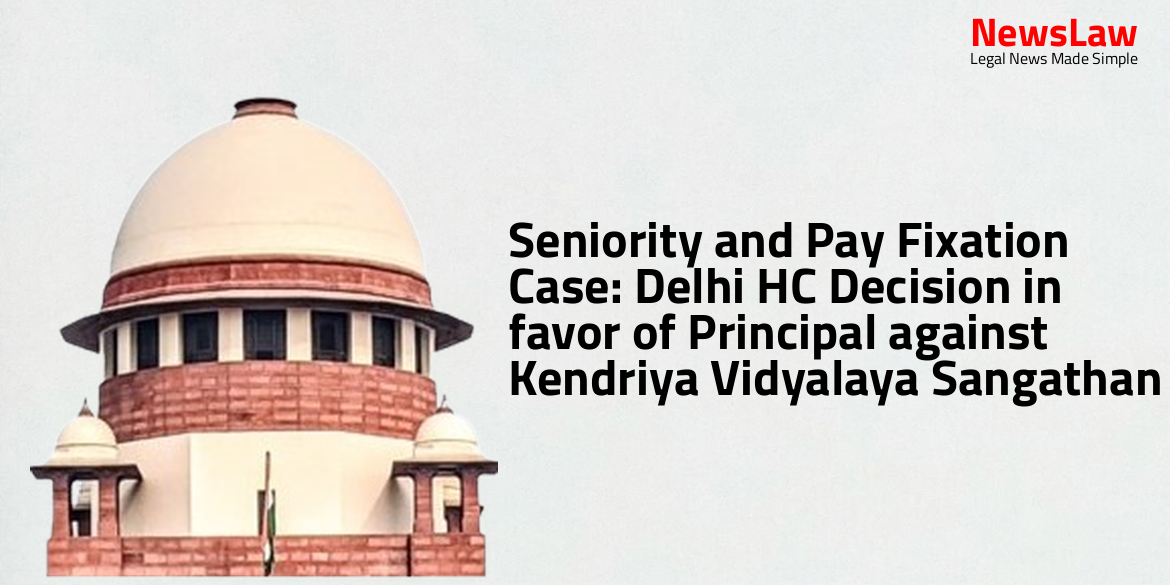In a landmark ruling by the Supreme Court of India, the case of Ashok Kumar Gupta v. M.D. Creations and Others has set a significant precedent regarding the extension of time frames in arbitration proceedings. This judgement addresses crucial aspects of arbitration law, emphasizing the court’s authority to extend the period for making an award, and the implications for ongoing proceedings. Let’s delve into the key points and implications of this significant legal decision.
Facts
- The High Court at Calcutta ruled that once the arbitral tribunal’s mandate expires after twelve months or upon consent of parties after a six-month extension, the court cannot extend time under Section 29A(4).
Also Read: Case Summary: Disputed Share Acquisition Involving Dr. Suresh Anne
Analysis
- Section 29A of the A & C Act sets the time limit for arbitral awards.
- Different High Courts have differing views on the interpretation of Sections 29A(4) and 29A(5) of the A & C Act.
- The High Courts of Delhi, Jammu and Kashmir and Ladakh, Bombay, Kerala, and Madras, as well as the High Court at Calcutta in Ashok Kumar Gupta, have accepted the view that an application for extension of time limit for arbitral award can be filed even after the initial twelve months or extended six months have expired.
- The High Court at Calcutta in Ashok Kumar Gupta v. M.D. Creations and Others and the Division Bench of the High Court of Judicature at Patna in South Bihar Power Distribution Company Limited v. Bhagalpur Electricity Distribution Company Private Limited have also supported this interpretation.
- Courts are advised against imposing specific limitations when the legislature has not provided one.
- The court has the authority to extend the period for making an award, and may substitute arbitrators if needed.
- The arbitral proceedings continue from the stage already reached, based on the evidence and material on record.
- New arbitrators appointed under this section are deemed to have received the existing evidence and material.
- The reconstituted arbitral tribunal is considered a continuation of the previously appointed tribunal.
- If delays are due to the arbitral tribunal, the court may reduce arbitrator fees by up to five percent for each month of delay.
- Parties may consent to extend the period for making an award for a maximum of six months.
- The court has the authority to impose actual or exemplary costs on any party.
- Applications under this section must be handled expediently, with a goal of resolving them within sixty days.
- The Arbitration Act of 1940 had different provisions regarding the time frame for making the award, allowing for extensions by the court.
- The reasoning provided in the judgment rejects the argument that an extension application must be filed before the culmination of the initial twelve-month period or the extended six-month period.
- The legislative intent behind the 2015 Amendment was to expedite case disposal and reduce litigation costs.
- The power of the court to extend the time under Section 29A(4) must be exercised only with sufficient cause.
- The preference for the term ‘terminate’ over ‘suspend’ in Section 29A reflects the legislative intent and avoids potential legal complications.
- The court’s power to substitute arbitrators under Section 29A(4) is highlighted, showing a focus on efficient arbitration proceedings.
- The Commission’s proposal to allow arbitration to continue pending the disposal of extension applications is mentioned as a solution to delays.
- The termination of the arbitral mandate is seen as conditional upon the non-filing of an extension application, indicating a flexible interpretation rather than a strict limitation period.
- The word ‘terminate’ in Section 29A(4) does not imply a complete and final end to proceedings, allowing for potential revival upon extension applications.
- The need to interpret the word ‘terminate’ in context rather than in isolation is emphasized for a comprehensive reading of the provision.
- The importance of focusing on the purpose of the legal text and avoiding impracticable scenarios is reiterated.
- There is a provision for extension of the time period for passing an arbitral award under Section 29A(4) read with Section 29A(5) even after the expiry of the initial twelve-month period.
- The application for extension may be made even after the extended six-month period has lapsed.
- Early disposal of applications for extension should be considered to prevent unnecessary delays.
- An interpretation of a statute should not lead to unreasonable results; a practical and acceptable construction should be favored.
- The removal of a time limit for passing an arbitral award has negative consequences.
- Delays in the arbitral process can occur even without court intervention.
Also Read: Landmark Judgment by Supreme Court on Toll Collection Dispute
Decision
- Parties can extend time by one year with mutual consent.
- Parties can extend the period for final hearing by one year after 30.09.2024 by consent.
- Court may impose costs and indicate future procedure when granting extension.
- Recommendation from 76th Report of the Law Commission to pass award within one year of arbitrators entering the reference to be followed.
- Further extension beyond the initial period must be granted by the Court.
- Applications for extension to be disposed of within one month.
- Arbitration proceedings can continue pending the extension application.
- Court to consider sufficient cause and observations in paragraph 15 of the judgment when adjudicating extension applications.
Case Title: ROHAN BUILDERS (INDIA) PRIVATE LIMITED Vs. BERGER PAINTS INDIA LIMITED (2024 INSC 686)
Case Number: SLP(C) No.-023320 – 2023



